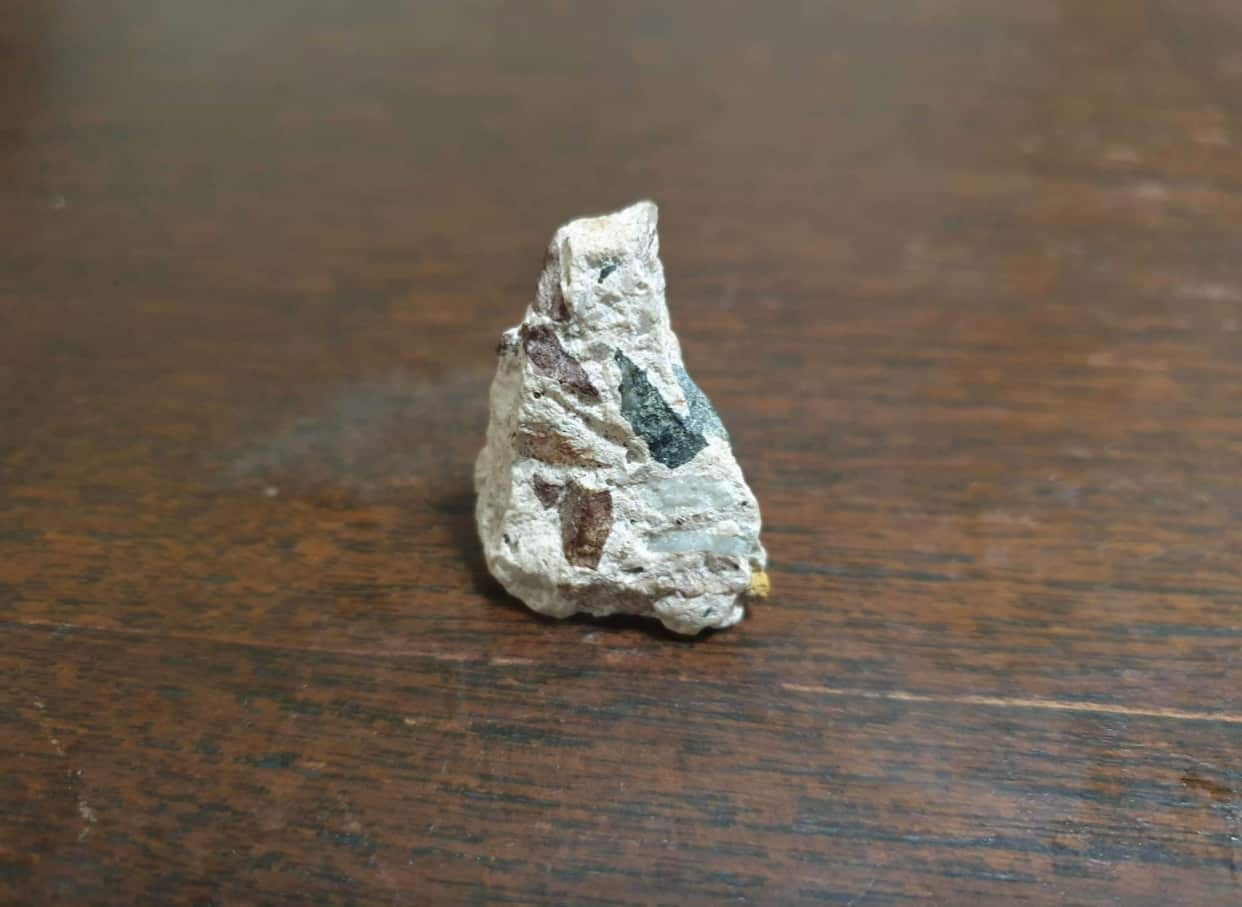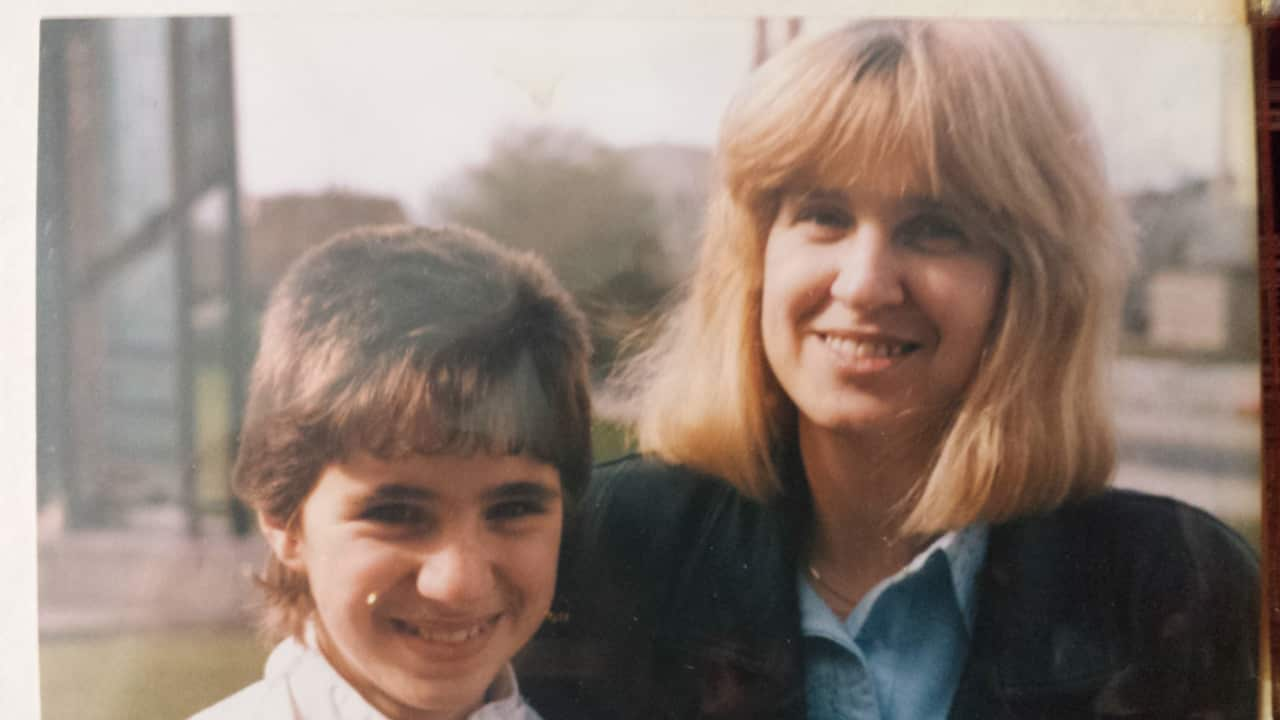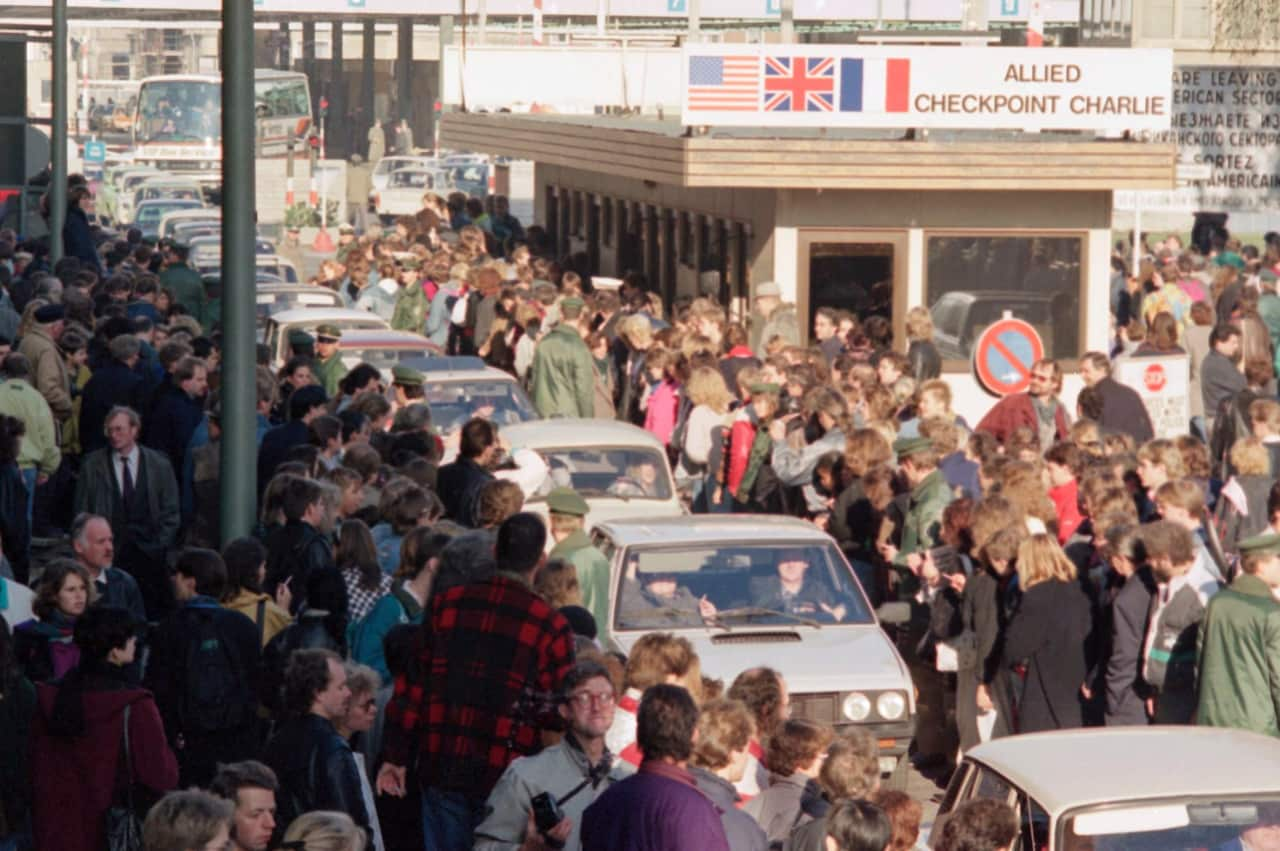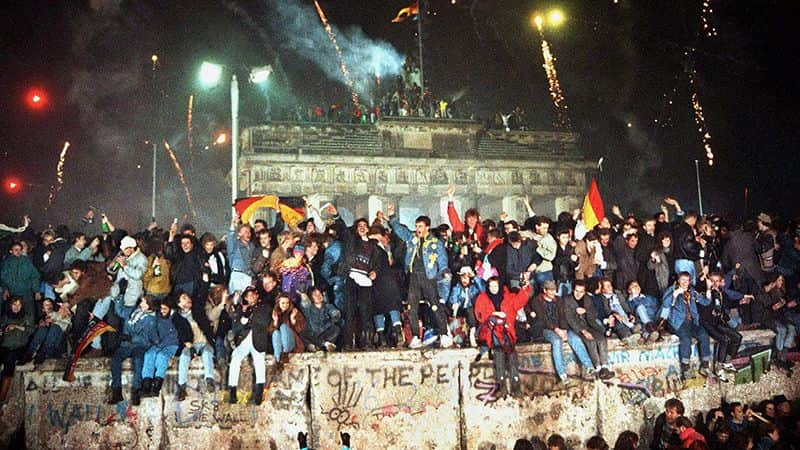Sitting on a falling wall
Malte Marquarding was 15-years-old when he traveled to West Berlin with his teachers and fellow students from Buchholz near Hamburg. The visit in early November 1989 included a day trip to East Berlin where he witnessed the stark reality of communism.
“It certainly didn’t look as if things were going to change anytime soon,” he says. “It was very quiet and the usual restrictions were in place, such as the minimum obligatory currency exchange.”
The next day, Malte and his friends climbed the wall and sat on it, as many West Berliners did at the time to express solidarity with East Berliners who had been demonstrating at a large rally at Berlin-Alexanderplatz.
“I can remember the young GDR officers, how they quietly spoke to girls with red roses who had been audaciously lowered from the wall onto the prohibited area, asking them to return to the top of the wall... It could have easily turned out another way.”
They and other Berliners had no idea that these gestures of solidarity were to be followed just a day or two by the fall of the "anti-fascist barrier" as the wall was known in the parlance of the regime in East Germany – or the German Democratic Republic (GDR) as it was called then.
Today, Malte lives in Sydney and works as an astrophysicist at CSIRO. He is proud to have witnessed this once-in-a-lifetime event. And should he ever forget, he only needs to look at his bookshelf. There, hidden among decades of paraphernalia, lies an original piece of the wall, which he chiseled out on that fateful November school visit.

Awoken by horns
Beata Kolasinski-Maurer grew up in Weisswasser, a small town in eastern Saxony then contained in East Germany and known for its glassmaking industry. Beata was 13-years-old when the wall came crashing down, but she was on the Western side.
“I can still vividly remember being woken up by the sound of car horns. And when we looked out the window of our ground-floor apartment at Osloer Strasse in Berlin-Wedding the cars turned out to be Trabis!,” she says of the East German-produced Trabant cars, which poured across the border as the wall came down.
She turned on the television and couldn’t believe that the frontier crossings had opened.
The irony in Beata’s case was that the fall of the wall happened three weeks too late for her family, as she had already moved to the West from the East.
“My mum and I had just migrated from Weisswasser to West Berlin via Checkpoint Charlie on the 16th of October 1989.”

The young family had left all their possessions behind in the GDR - their home, money, friends and belongings - to start a new life in the West.
“My mother would later often say, ‘If only we had waited three more weeks. Life could have been so much easier’.”
Today, Beata is happy and at home in two worlds: Sydney, where she lives with her Australian husband and daughter, and a unified Germany which she visits once a year.
Skipping the queues with a 'pregnancy pass'
Illona Prindable, a German accountant now living in Canberra, was working at a hotel in East Berlin not far from Checkpoint Charlie when the wall came down. She was 28-years-old and pregnant, as was her best friend. Illona was just about to finish her late shift on November 9, 1989 when rumours swirled that “something big was about to happen”.
She grabbed her friend and rushed to the nearest border crossing, flashing her 'pregnancy pass', which in the GDR ensured expectant mothers could skip queues. Thus Illona was among the first GDR residents to be permitted to cross the border that night.
“I later heard that some residents had their identity papers stamped because the authorities were instructed to deny them re-entry into the GDR - but my papers were not stamped,” she says.

Instead, Illona spent the night roaming the streets of West Berlin enjoying new-found freedom before returning to East Berlin at dawn. She found her husband sound asleep in bed, presuming he had missed the news, until she entered the kitchen.
There, sitting on the table, was a West German newspaper, proving he too had crossed the frontier.
Sleeping through history
Stephan Stiess migrated to Australia in 2002, now living in Newcastle, and unlike Illona Prindable's husband, he did indeed sleep through the historic event.
Stephan grew up in East Berlin and was 19-years-old when the Berlin Wall came down. He woke up on the morning of November 10, blissfully ignorant of the momentous events of the night prior.
“I remember arriving at the bus station, wondering where all the usual commuters were,” he chuckles. “I turned on the radio but they were talking politics. I was 19 and not interested in politics, so I put on a cassette.”
Only when he arrived at work that day did the news break through to him.
“I think by early afternoon, we called it quits, and me and my friends joined the stampede to West Berlin at Warschauer Strasse,” he recalls. One of the first things he noticed on the other side was people forming long queues at banks.
“They were receiving their ‘Begrüssungsgeld’ ['Welcome money'] of 100 Deutsche Mark,” he says of the money the West German government pledged every East German would receive if and when they first arrived in West Germany.

Stephan, who bought his first leather jacket on one of those first visits, finds it fascinating that the fall of the Berlin wall owes as much to history as it does to sheer luck.
“My understanding is that the East German authorities only allowed the wall to be opened up for one night. It just happened that the people thought otherwise.”
